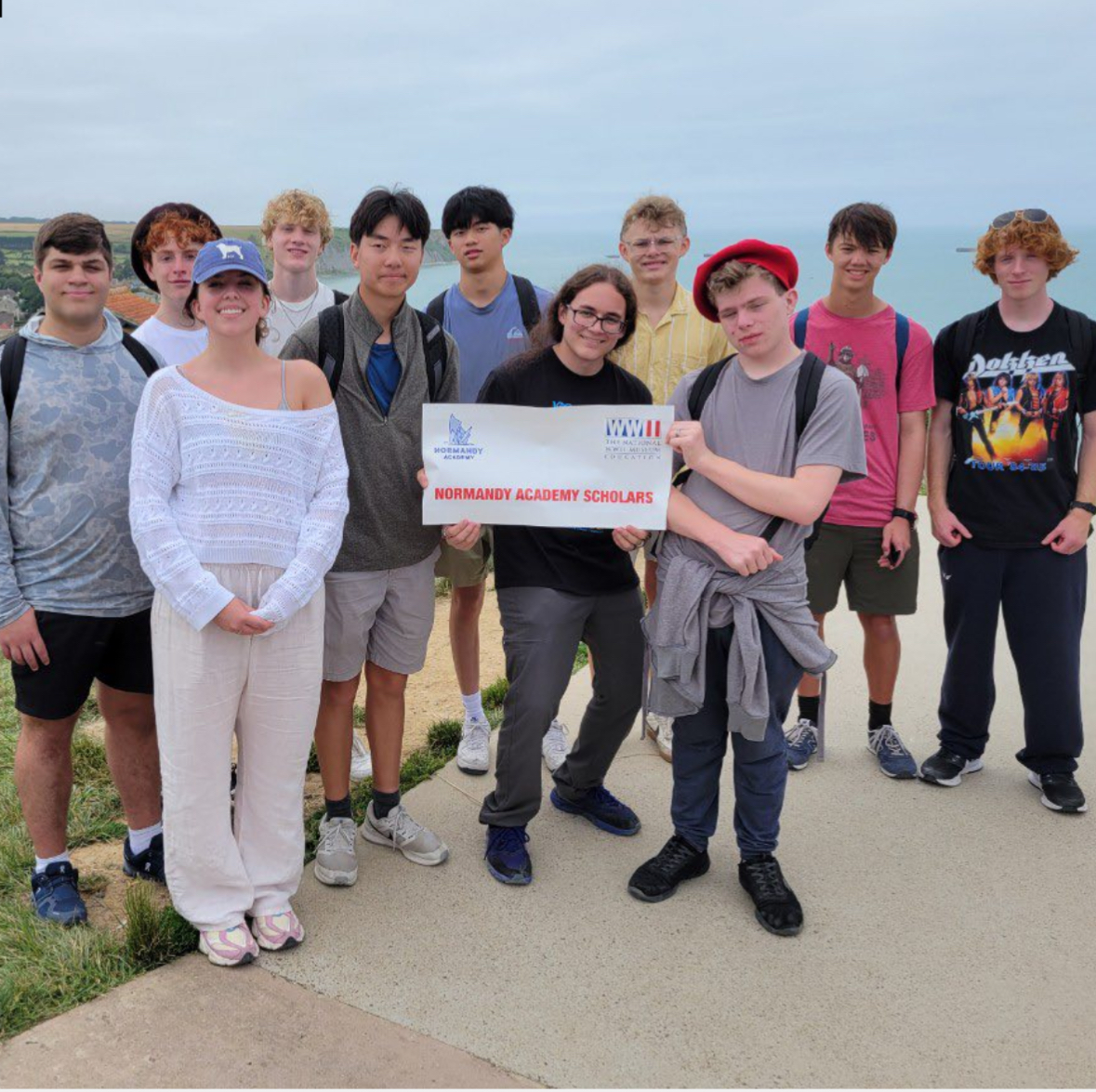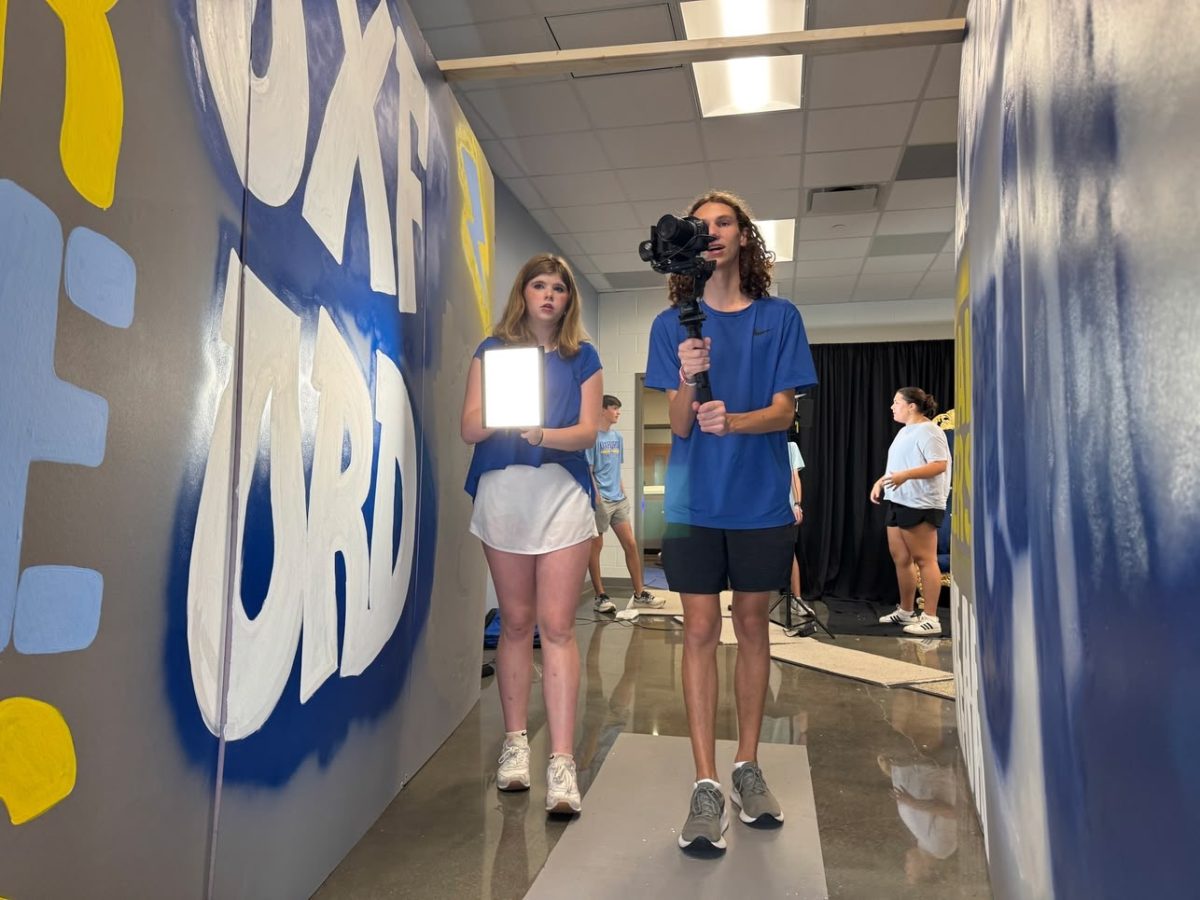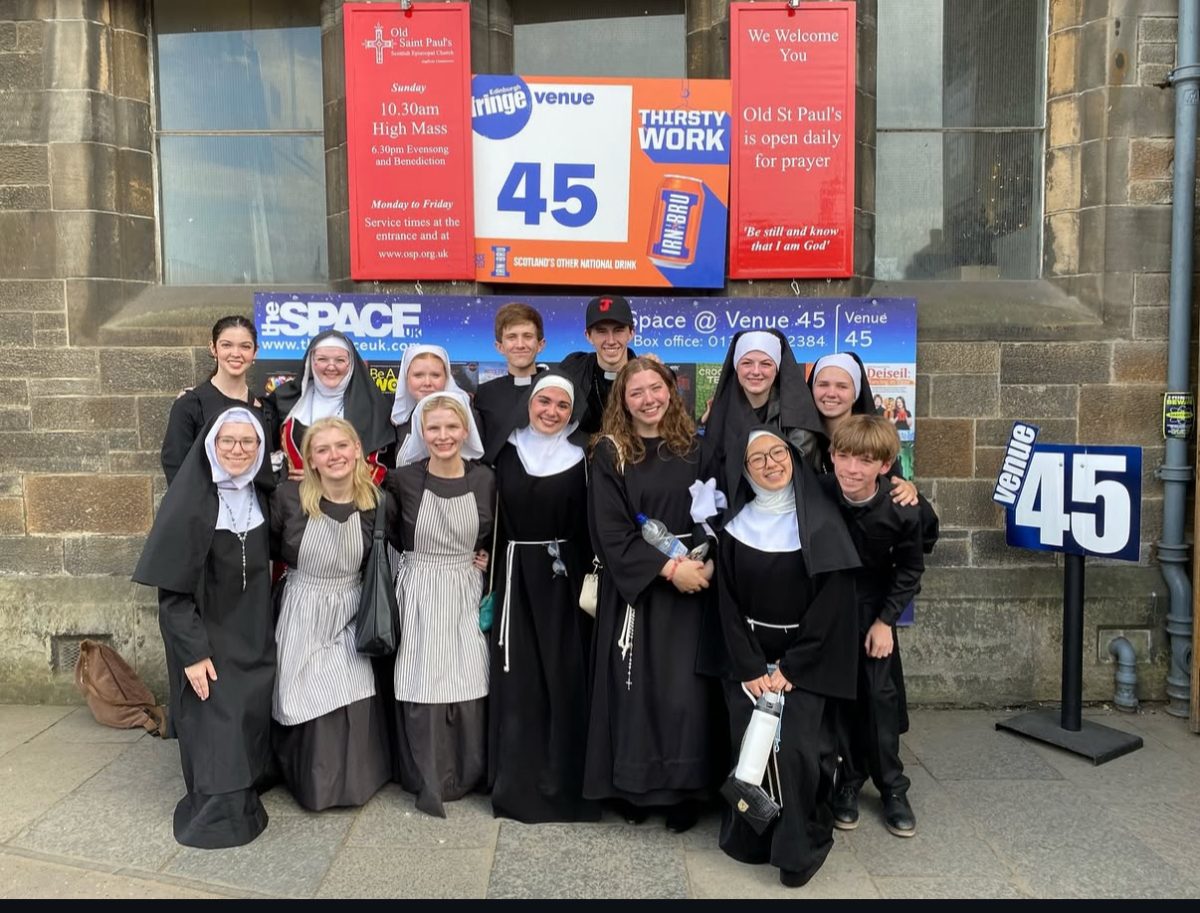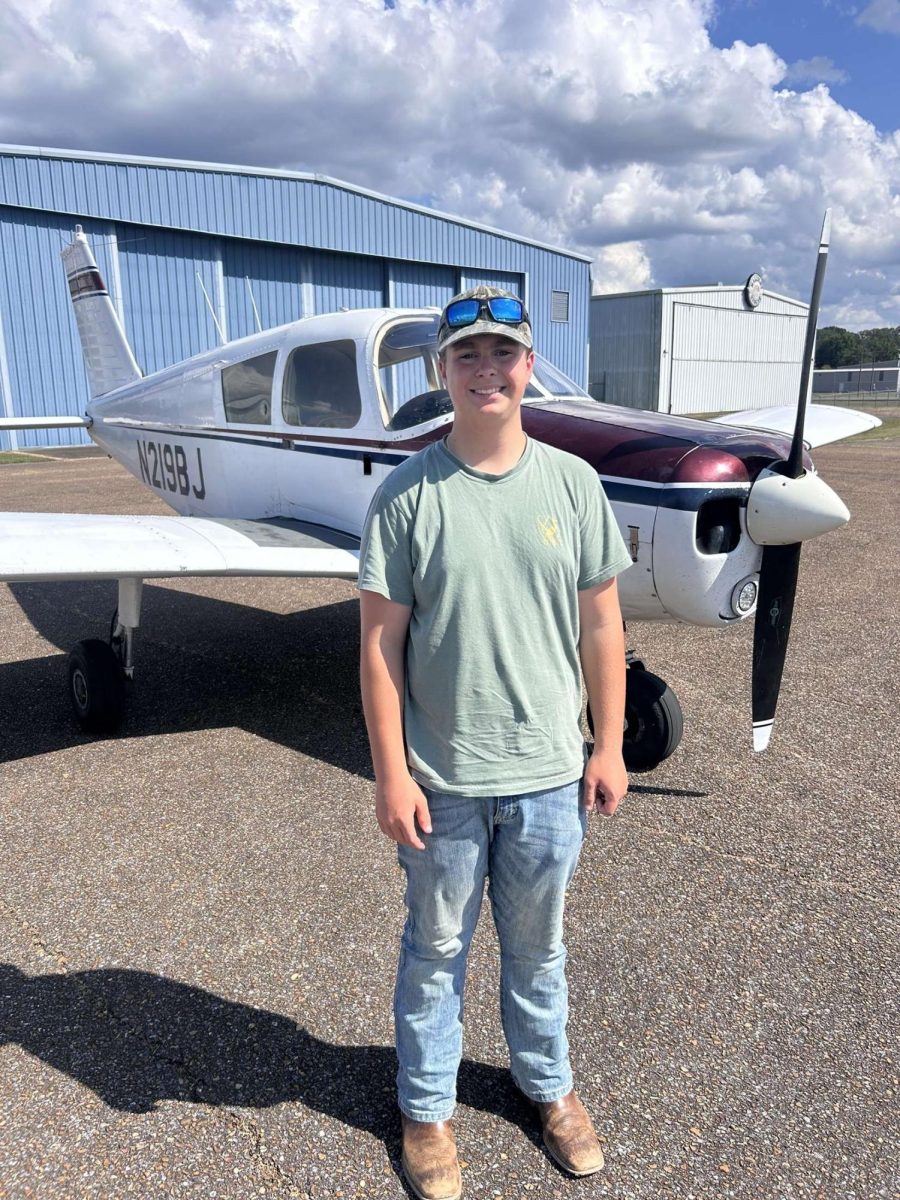ded Normandy Academy’s program, visiting the National World War II Museum for an exciting summer adventure. Harrell obtained a unique experience through this program and learned a lot of new things along the way.
On this trip, Harrell was offered a number of experiences that showed real scaled events frozen in time.
“It’s a very interesting feeling to describe,” Harrell said. “To hear about something and to read the numbers on the wall of the museum versus actually going there and being able to visualize what it actually looked like.”
The Normandy Program has given many students, including Harrell, benefits that help fuel them academically.
“I believe it has just been endlessly helpful for me being able to progress my own understanding of the language,” Harrell said. “So I know that a lot of people at the high school have a very strong admiration of history, that is, I know that there are a lot of people who are interested in World War II and in the same realm of knowledge that the Normandy program would give to you.”
There were numerous influences Harrell appreciated helping him get into the program.
“For me, it was Mrs. Wiltcher and Dr. Lindsay,” Harrell said. “They both told me about the program that the World War II Museum in New Orleans was offering. I signed up for it. I have always loved history, loved to learn about WWII, especially.”
Learning history and staying involved is extremely important to Harrell, and he will continue to stay curious throughout his academic journey.
“I’d love to keep up with it through college,” Harrell said. “I plan on taking some electives in order to continue some kind of history. I plan on continuing to visit more of these locations and going abroad more often – just being involved in it – because it’s a field that I never want to get away from.”
OHS history teacher Stella Lindsey motivates her students to give Normandy Academy a chance.
“Mrs. Wiltcher and I encouraged our students to apply to the Normandy Academy Program, which is offered through the National World War II Museum in New Orleans,” Lindsey said. “We were thrilled when Macon was awarded a place.”
Lindsey thinks there are many possible benefits of having an experience like this one.
“I want students to know there are unlimited possibilities for them here at home or abroad,” Lindsey said. “I have been fortunate to travel to Europe and Latin America and learn how study abroad programs broaden one’s world view and open opportunities you never knew existed.”
Sugi Wiltcher, another history teacher at OHS, also helped emphasize the importance of the Normandy Program for Harrell. Wiltcher was able to see first hand how fitting this trip was for her student.
“Macon is one the most intelligent students I have taught, something I was able to spot his freshman year,” Wiltcher said. “He has a genuine eagerness to learn about history and its relevance to today. He was also a student who consistently asked questions that made me dig deeper and made me a better teacher.”
The importance of learning about WWII and other segments of history resonates within Wiltcher and her students. Wiltcher knew that this specific program would be an environment for Harrell to thrive in.
“History is at the core of each subject,” Wiltcher said. “This program offers students the opportunity to make physical connections with the past. WWII is certainly very relevant to our current world situation, and there is no better way to learn about the past than by seeing where it took place. This program offers key looks into the past, immerses them in a culture that is not their own and all the while learning from some of the best professors the field of history has to offer.”









